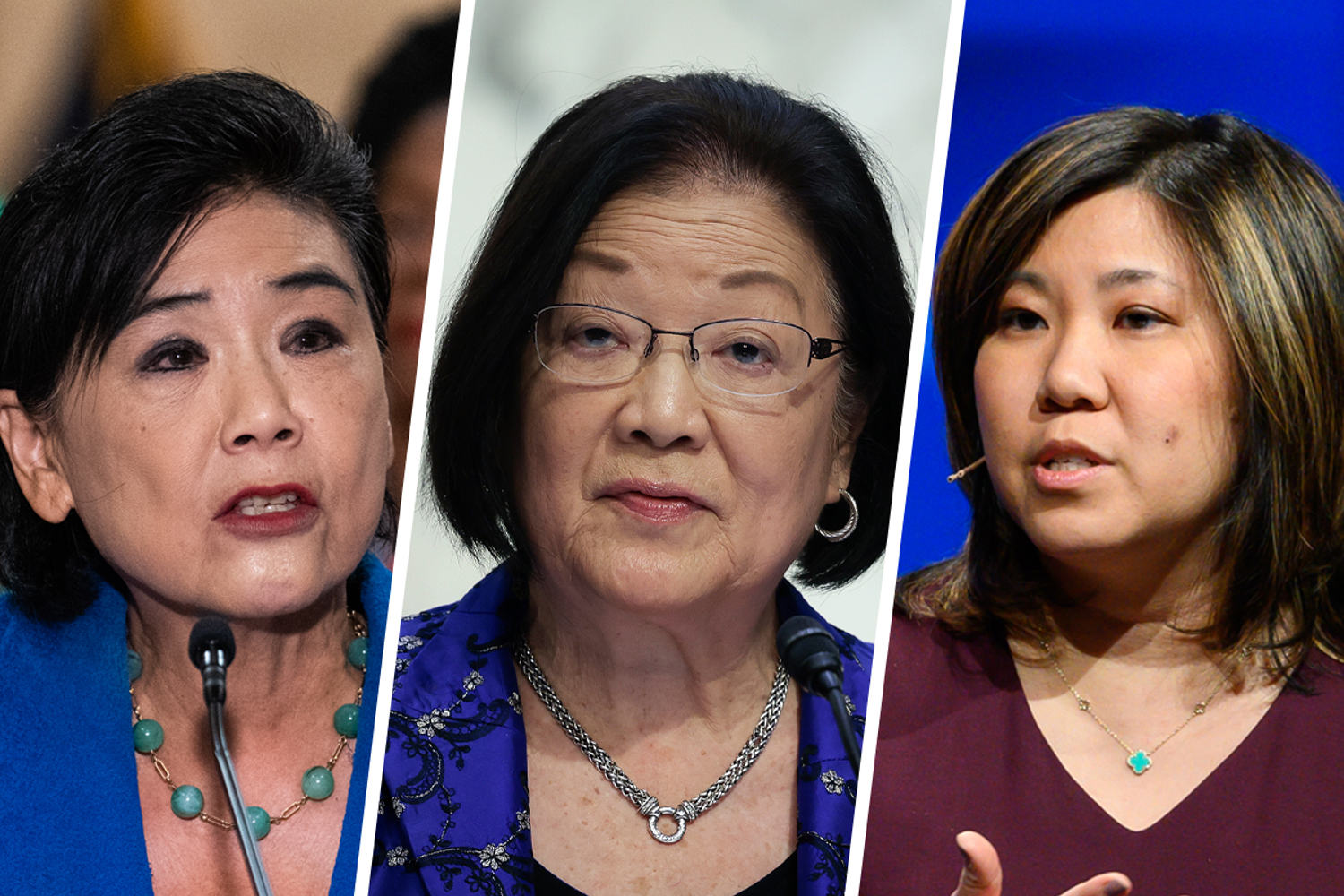
More than a dozen Democratic lawmakers urged congressional leadership to halt the potential reinstatement of the China Initiative, a controversial Trump-era program that once led to accusations of racial profiling toward Asian scientists in the U.S.
In a letter first shared with NBC News on Monday, the group of legislators called on House and Senate leadership to remove language written by GOP lawmakers related to a key House spending bill that demanded the program be reactivated. The China Initiative, established to thwart China from stealing scientific and technological secrets, expired in 2022 following major concerns from the academic community over discrimination and targeting of scientists of Asian descent.
The Democratic lawmakers took issue with language used in explanatory materials to the bill, H.R. 5893. The materials, which accompany the legislation and further explain its rationale, called the previous decision to end the initiative “deeply irresponsible.” Republican lawmakers on the Commerce, Justice, Science, and Related Agencies Subcommittee behind the materials also called on the National Security Division of the Justice Department to re-establish an office with a similar mission. In another section of the materials, the lawmakers described the end of the program as “unwise.”
“This decision is an example of weakness from a Justice Department more concerned with being politically correct than protecting Americans, and stands in stark contrast to the actions of other Federal agencies that have taken steps in recognition of the extraordinary long term threat China poses to the United States,” the explanatory materials read.
“A budget is a representation of our priorities and values,” read the letter, spearheaded by Rep. Grace Meng, D-N.Y., Rep. Judy Chu, D-Calif., and Sen. Mazie Hirono, D-Hawaii. “It would be both a misallocation of resources and a backsliding for civil rights to restart the China Initiative.”
And Meng warned that a restart of the China Initiative could put a target on the backs of Asian Americans.
“The China Initiative came at the expense of innocent Asian Americans, by questioning their loyalty and reinforcing negative and harmful stereotypes,” she said in a news release. “We cannot return to this.”
The group of lawmakers wrote in Monday’s letter that they object to the China Initiative’s characterization in the explanatory materials, calling on language around restarting the program to be stricken. They argued that the program led to serious consequences for the Asian American community and little transparency from the DOJ.
“This prosecutorial initiative was a blunt instrument wielded against anyone who had ‘some nexus to China,’” the letter read. “An unacceptably high number of the aforementioned cases ended in dropped charges, dismissals, and acquittals because prosecutors could not prove allegations.”
Several Asian American academics and scientists have been falsely accused of spying under the Trump-era initiative. One such scientist, hydrologist Sherry Chen, was awarded more than $1.5 million in damages for her wrongful prosecution and termination from her job at the National Weather Service after she was arrested in 2014. Another scientist, MIT professor Gang Chen, had his charges dismissed in January 2022, but has since stepped away from any federally funded research due to anxieties of being racially profiled.
Many others have reported similar fears. More than 50% of scientists of Chinese descent in the U.S. now “feel considerable fear and/or anxiety” that they are under government surveillance, according to 2021 research by the nonprofit Committee of 100.
In a 2022 speech at George Mason University, Matthew Olsen, head of the National Security Division at the DOJ, spoke about the end of the China Initiative, addressing previous concerns around discrimination, racial profiling and its impact on the research community.
“While I remain focused on the evolving, significant threat that the government of China poses, I have concluded that this initiative is not the right approach,” he said.
For more from NBC Asian America, sign up for our weekly newsletter.
